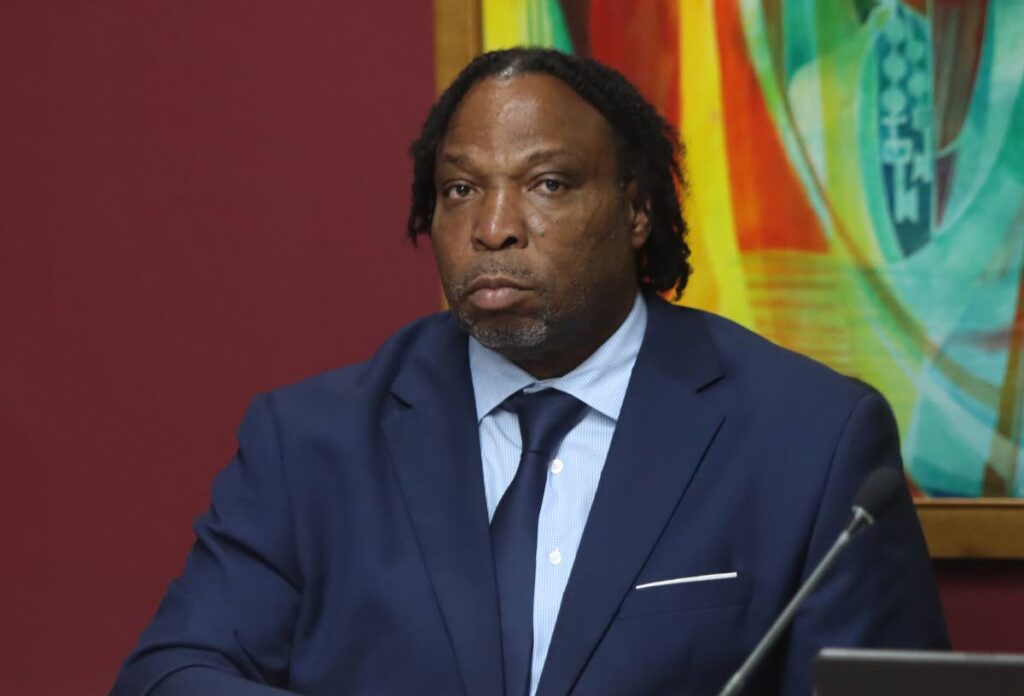PNM youth contribute to constitutional reform

Over 100 young people turned out for the first of several internal consultations to get submissions towards the PNM’s position on constitutional reform and change. The event was held at Balisier House, Port of Spain, on March 9.
In January, at the PNM’s General Council meeting, the PM appointed a ten-member working committee to undertake consultations and to develop the PNM’s position on constitutional reform for Trinidad and Tobago.
Attorney and Port of Spain South MP Keith Scotland was appointed chairman. Speaking to the media after the event, he said there were several submissions made during the day.
"Submissions were centred around the service commissions, the savings law clause, the right to a fair trial in a reasonable time, the detection or obfuscating of the Privy Council as the final court of appeal, culture and separation of powers."
Scotland said the depth of submissions from the young people present was surprising to the committee.
“As Ms (Jennifer) Baptiste-Primus said, they think outside of the box. The ones that stood out to me were the inclusion of culture, the aspect of the service commission and the concept of seniority for advancement as opposed to meritocracy.” Baptiste-Primus is the PNM's labour relations officer.
He said there would be consultation with the PNM’s Women’s League, its Tobago arm, and the 41 constituencies, which had been divided into north, south, east, and west.
Asked if he thought the views of Dr Rowley would influence the submissions made, he said the exercise was a democratic one, and the PM had trusted the committee to come up with the suggestions.
Attorney and PNM senator Renuka Sagramsingh-Sooklal said the PM had trusted the committee to solicit the views of every single member of the PNM as it related to constitutional reform.
“By no means is the political leader going to dictate what goes into our working paper. He’s allowing his membership, throughout the length and breadth of these consultations to have an opportunity either in writing, or to come on the day of the consultation and ventilate their concerns, which will then form part of the working paper of the PNM's position on constitutional reform.”
He said the consultations would end by the end of April or early May, following which the working paper would be submitted to the National Advisory Committee.
Committee member Dr Jeremy Innis said a secure e-mail, ttconstitutionreformpnm@gmail.com, had been created for party members to submit their views and circulate to members internally.
Scotland said members of the public who were not part of the PNM could submit their positions and comments to the committee.
PNM Youth League chairman Sheneka Kirton said she was pleased with the turnout of young people, especially as many would have had previous plans. She said the youth of the party were engaged and happy that their voices were being taken into account.
Feature speaker novelist Earl Lovelace enjoined the young people to read the works of Dr Eric Williams and Franz Fanon in order to understand their country and themselves better.
He said they should read Williams’ Capitalism and Slavery, the History of the People of Trinidad and Tobago, and From Columbus to Castro: The History of the Caribbean 1492-1969.
He quoted Williams speaking about the impact of outside influences on Trinidad and Tobago and its people.
“Even though in Trinidad and Tobago the steelband and calypso have emerged, the artists’ community and individual values are not for the most part authentic. To borrow the language of the economist, there is a high import content, the vehicle of import being the educational system, the media, films, and the tourists. Naipaul’s description of West Indians as mimic men is harsh but true. Psychological dependence leads to a growing cultural and economic dependence on the outside world.”
In describing the path young people could take, given the problems confronting them, Lovelace quoted Fanon, who said “Each generation must, out of relative obscurity, discover its mission, fulfil it, or betray it.”
He explained that Fanon was speaking of a generational struggle, not an individual one, and suggested each person apply it to themselves and the party.
“Betrayal will be noted by the people around you and what continues to happen. It will be fulfilled when you are comfortable with what you have undertaken to do. This struggle is something that is hidden and you have to fulfil it or betray it. You have to make the party worthy of you and you have to be worthy of it.”

Comments
"PNM youth contribute to constitutional reform"